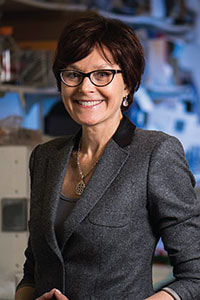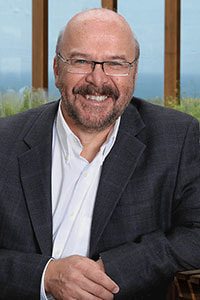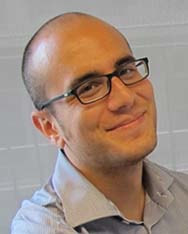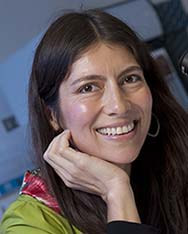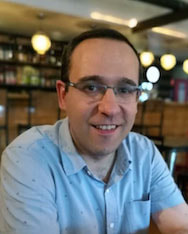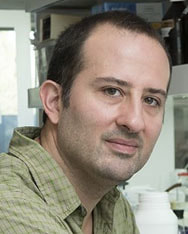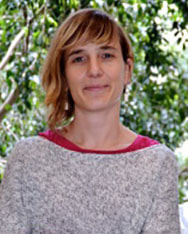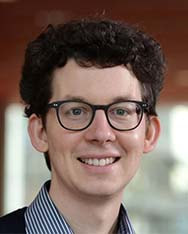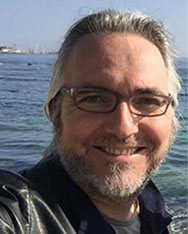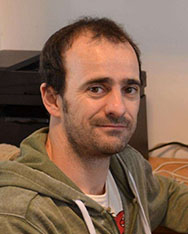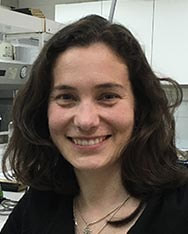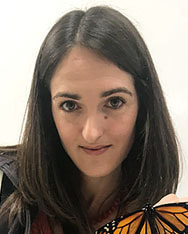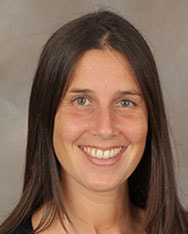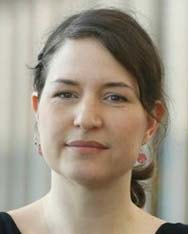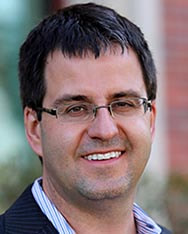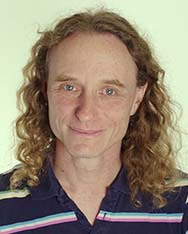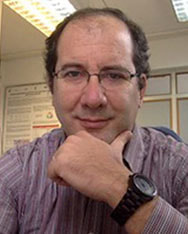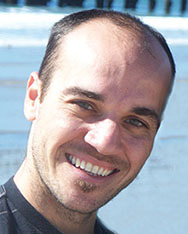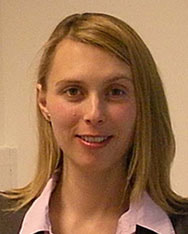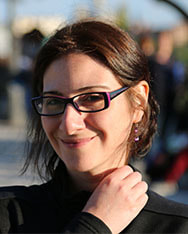Conference Speakers
|
Keynote Speakers
|
|
Lynne E. Maquat (University of Rochester, USA). IUBMB Jubilee Lecture. Research in the Maquat lab focuses on RNA decay pathways, largely in human cells, and their relevance to human diseases. The group is currently studying the mechanisms of nonsense-mediated mRNA decay, and post-transcriptional gene regulation by dsRNA-binding proteins. |
|
Joseph Ecker (The Salk Institute for Biological Studies, USA). The Ecker group uses genomic technologies to address long-standing questions in plant and human biology, with a focus on understanding the epigenomes of plants and people, and unraveling hormone regulatory networks in plants. |
|
|
Confirmed Speakers
(Alphabetical order; subject to change) |
|
Alejandro Burga (IMBA - Institute of Molecular Biotechnology, Vienna, Austria). The primary goal of the Burga lab is to understand the forces driving the evolution of complex traits, with a particular emphasis on the contribution of epistatic interactions and genomic conflict. |
|
Andrea Calixto (Universidad Mayor, Chile). The Calixto group aims to understand how dietary inputs modify cellular phenotype and behavior. To this end, they use the bacterivore nematode Caenorhabditis elegans and its different bacterial diets. |
|
Javier Canales (Universidad Austral, Chile). Research in the Canales lab is focused on the molecular mechanisms underlying the response of plants to nutrients, specifically, on the complex interactions between nutrients in metabolic pathways. |
|
Emma Farley (University of California, San Diego, USA). The Farley lab uses high-throughput functional genomics approaches to understand how the instructions for development are encoded in our genomes. |
|
Juan Pablo Fededa (Universidad Nacional de San Martín, Argentina). The Fededa lab combines in vitro screening techniques and in vivo manipulations in mice to discover novel transcriptional and post-transcriptional regulatory pathways during cerebro-cortical development, and in different normal and pathological processes. |
|
Mayra Furlan-Magaril (Universidad Nacional Autónoma de México, Mexico). The interest of the Furlan-Magaril laboratory is centered on the epigenetic processes that regulate gene expression, particularly in how genome spatial organization within the nucleus is linked to a given transcriptional state. |
|
Jan Philipp Junker (Max Delbrück Center for Molecular Medicine, Germany). The Junker group is interested in understanding the mechanisms that ensure the stability of developmental processes despite stochastic perturbations. They use the zebrafish as a model system to study organ development and regeneration. |
|
Luis F. Larrondo (P. Universidad Católica de Chile, Chile). The Larrondo lab is interested in elucidating the mechanisms underlying the circadian control of gene expression, through a combination of classic molecular and cell biology techniques and synthetic biology approaches. |
|
Pablo Manavella (Universidad Nacional del Litoral, Argentina). The goal of the Manavella lab is to elucidate the intricate mechanisms regulating miRNA biogenesis and activity. |
|
Marcia Manterola (Universidad de Chile, Chile). The Manterola lab is focused on understanding the role that epigenetic factors, such as epigenetic readers, have in establishing and regulating the epigenome of germ cells, in order to produce genetic and epigenetic competent gametes. |
|
Christine Merlin (Texas A&M University, USA). The Merlin Lab uses the migratory monarch butterfly to study animal migration, the role of circadian clocks in regulating animal physiology and behavior, and the evolution of the animal clockwork. |
|
Kate Meyer (Duke University, USA). The Meyer lab studies RNA modifications and seeks to understand how the epitranscriptome shapes gene expression. The group is particularly interested in how RNA methylation (m6A) controls gene expression programs in the brain to contribute to human health and disease. |
|
Catherine A. Musselman (University of Iowa College of Medicine, USA). The Musselman lab is interested in deciphering mechanisms of chromatin structure modulation and how misregulation of these pathways is associated with disease. Specifically, their goal is to elucidate, on the molecular level, the details of how cofactors target nucleosomes, especially in response to histone modification, and how this leads to the regulation of genes. |
|
Michaela Müller-McNicoll (Goethe University Frankfurt, Germany). The Müller-McNicoll group studies a family of nuclear RNA binding proteins called SR proteins, which bind to specific sites in pre-mRNAs during transcription and regulate constitutive and alternative splicing. |
|
Oded Rechavi (Tel Aviv University, Israel). The Rechavi lab investigates the mechanisms that enable epigenetic inheritance and soma-to-germline transmission of information. |
|
Remo Rohs (University of Southern California Los Angeles, USA). The main focus the Rohs lab is the structural and biophysical basis of molecular mechanisms that mediate specific interactions between nucleic acids and proteins. |
|
Barak Rotblat (Ben-Gurion University of the Negev, Israel). The Rotblat lab uses cancer as a model for studying how mRNA translation regulation and long noncoding RNAs promote adaptation to stress. |
|
José Sotelo-Silveira (IIBCE, Clemente Estable, Uruguay). Research in the Sotelo-Silveira group is focused on mRNA targeting and local protein synthesis in axons, and has also recently started moving towards cancer and microbial genomics. |
|
Pablo Strobl-Mazzulla (Instituto Tecnológico de Chascomús (CONICET-UNSAM), Argentina). The main biological question that is driving research in the Strobl-Mazzulla lab is understanding the epigenetic basis of vertebrate development and differentiation. |
|
Lidia Vasiljeva (University of Oxford, UK). Research in the Vasiljeva lab is aimed to understand how chromatin modifiers, RNA polymerase II transcription factors, and the exosome complex, a major RNA processing/degradation machinery, orchestrate different aspects of RNA metabolism: transcription, RNA processing, and RNA quality control. |
|
Elena A. Vidal (Universidad Mayor, Chile). The Vidal group studies how plants adapt and respond to the environment, using genomics and systems biology approaches. |
